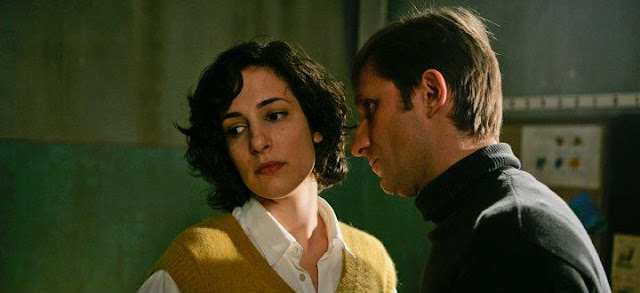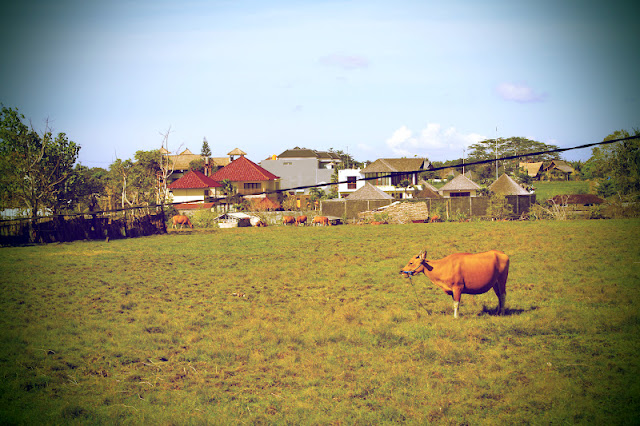Sunday, June 24, 2012
Extremely Loud and Incredibly Close
It's 3.01 a.m now. Just finished watching the film. I can't remember the last time I've cried this much. Perhaps when it was when I first read the book three years back. I'm struggling to write about what I feel, but as the clock keeps on ticking, I realize, there are no words for this
Friday, June 22, 2012
In the Land of Blood and Honey
Wartime drama
In the Land of Blood and Honey is a brave and and unexpected choice
for Angelina Jolie's directorial debut.
Set
during the 1990s Bosnian War, the film tells of a love story that
blossoms between a Bosnian Serb forces captain Danijel (Goran Kostic)
and a Bosnian Muslim artist Ajla (Zana Marjanovic). The two meet in
secret, as she is a prisoner at a camp that he runs. But as the
ethnic conflict drags on, the two find each other on different sides.
To
ensure authenticity, Jolie
chose a cast of relatively unknown, local actors who had lived
through the war. This move has rewarded Jolie handsomely. With so
much emotional depth brought to their roles, it is difficult to find
fault with their acting.
Danijel
is portrayed as a man torn between conflicting desires. A pacifist at
heart, he is sickened by the senseless killing of civilians. Yet his
father, a prominent Serbian
general Nebojsa (Rade Serbedzija), has taught him to view
Muslim Bosniaks with contempt.
Kostic
handles the challenging role convincingly. At times, he displays an
moving tenderness towards Ajla, which transforms into a seething rage
when angered. Veering between cynicism and idealism, peace and
violence, loyalty and suspicion, Danijel is a fascinating, richly
complex character of much pathos.
Like
Danijel, Ajla has an equally demanding role, and she struggles with
the guilt of having consorted with the enemy. However, Ajla's
characterization is often constrained by the script.
Yet,
with what little dialogue she is given, Marjanovic
is a captivating actress.
In one scene, she asks, her large eyes expressive, a slight tremor in
her voice, “Are
we so terrible that we should be exterminated?”
The
somewhat perverse and masochistic love story between captor and
prisoner that emerges is deeply engrossing. In comparison, the rest
of the film sags, as other characters like Ajla's sister, Lejla
(Vanesa Glodjo), are severely under-drawn. Though Serbedzija gives a
quietly chilling performance as a self-righteous general obsessed
with ethnic cleansing, he is given too little screen-time. Given a
more nuanced portrayal of these characters, it might have have added
an additional layer to the film. To Jolie's credit, she strives to
avoid the usual villain stereotype, and instead attempts to explain
the Serbs' motives for prolonging the war.
There is no
easy way to convey such a grim subject matter. Spanning five years,
the war takes place in stark, wintry landscapes littered with the
remnants of bombed buildings, debris and corpses. The lovers'
clandestine meetings are lengthy, with heavy overtones, and are
punctuated with swift acts of violence, both physical and
psychological. Women are systematically raped in excruciatingly
graphic detail, bombs are dropped indiscriminately, and mass
executions are carried out in military precision. The initial effect
is jarring, but becomes this pattern becomes a tad repetitive later
on.
Jolie has
skillfully dramatized the atrocities and suffering of the Bosnian
war. No one is spared from the monstrous acts, which are presented in
unflinching detail. For instance, rape is used as a tool for the Serb
solidiers to assert their superiority. It is distressing, to say the
least. Women are presented as powerless and voiceless, and there are
shocking images of the women's bloodied thighs and lifeless eyes.
Jolie also
makes her criticism of the UN's lack of intervention clearly felt. In
one telling example, at the museum, where Ajla points out the empty
spaces in a painting, saying, “It's the choice not to do
something.”
No
one can doubt Jolie's ability to push her political message about the
evils of war.
But this
is where she falls short. Unlike Roman
Polanski's similarly genocide-themed The
Pianist (2002), she fails to weave together a truly powerful and
convincing story.
Nevertheless,
her efforts are laudable. She has demonstrated great care in crafting
each scene, and in bringing out the best in each actor. Already, it
has earned her a Golden Globe nominee for Best Foreign Film. With a
more sensitive touch to the plot and consistent characterization,
Jolie could have told a more haunting and poignant story.
Saturday, June 16, 2012
it's only make-believe
Bali: I
am slowly treading my way across the beach, feeling the grains of
sand beneath my feet. My feet are carrying me forward of their own
accord, towards the black waves, which are pounding relentlessly
against the shore. A terrible fear comes over me- one misstep and the
darkness could swallow me whole, inky black waters filling my nose my
mouth my lungs, pulling me down into the bottomless depths- but
still, I continue to move forward numbly, as if in a trance. It's
only when I hear my dad in the distance, calling out something about
the moon, that with some effort, I pull my eyes away.
Set
high up in the clear sky is a full moon, completely suffused with
light. Its brightness stuns me momentarily. Free from distracting
artificial lights, free from being blocked by massive buildings- it
feels like I'm looking at the moon for the first time. It is achingly
beautiful, radiating rays of glowing white light, and the world is
bathed in a soft, ethereal glow. I think about the atoms that make up
the universe. How it would take light-years to traverse through the
galaxy, and be consumed by an infinity of space, of silence. How
painfully inconsequential our lives are. I feel like Aomame in Murakami's novel 1Q84, as I
gaze up, wondering if the world that I exist in is even real. Perhaps
it's just a paper moon, a paper world that will ultimately crumble to
dust and cease to exist. And then briefly, I let myself wonder,
perhaps somewhere out there, oceans away, my Tengo is looking up at
the same moon, our thoughts perfectly aligned. But then I stop myself. Maybe
the idea of Tengo exists, but only in another life, in another world,
in another reality.
Friday, June 15, 2012
Subscribe to:
Posts (Atom)
































